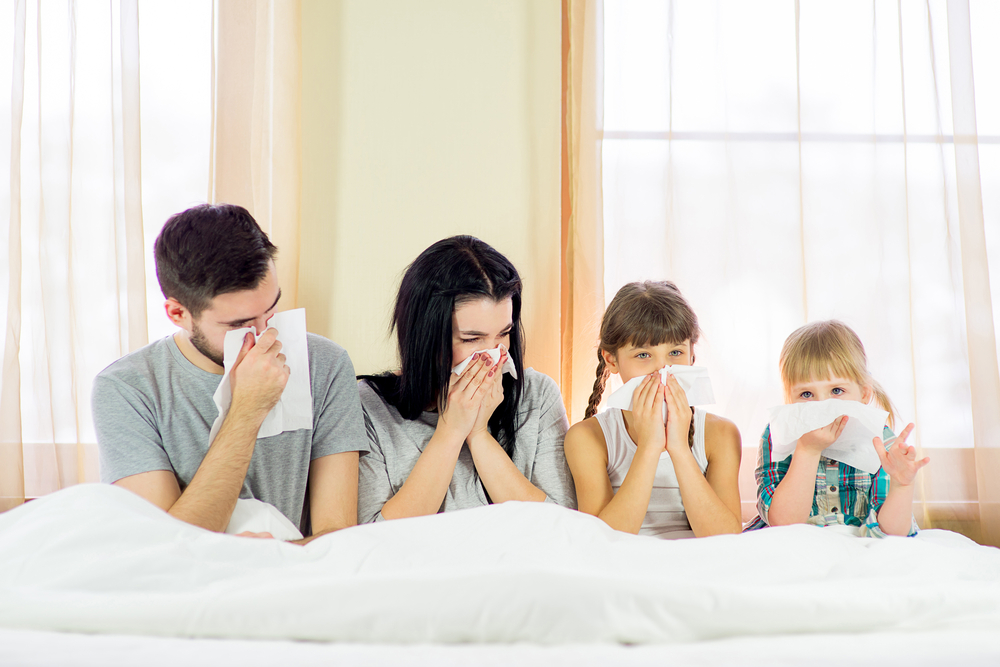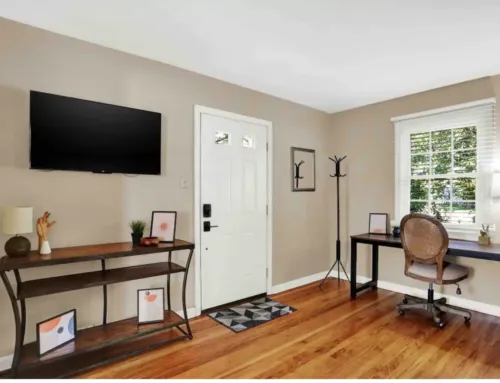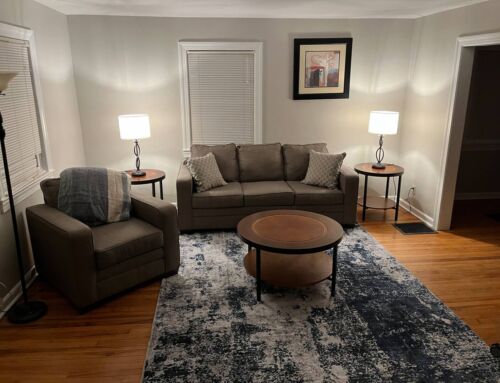Living with allergies or sensitivities to common indoor allergens can be challenging. Sneezing, congestion, itchy eyes, and other allergic symptoms can significantly impact one’s quality of life. However, there are steps you can take to reduce allergens within your home and make it a more comfortable environment for allergy sufferers. In this article, we will explore targeted cleaning methods and preventive measures that can help minimize indoor allergens, allowing allergy sufferers to breathe easier.
Understanding Indoor Allergens
Indoor allergens are substances that trigger allergic reactions in sensitive individuals. They can be found in various forms, such as dust, pet dander, mold spores, dust mites, and pollen. Understanding these allergens and their effects is crucial for effective allergen control.
Common Indoor Allergens
Some of the most common indoor allergens include:
- Dust mites: Microscopic creatures that thrive in bedding, upholstery, and carpets.
- Pet dander: Tiny particles of skin, saliva, or urine from animals.
- Mold spores: Microscopic fungi that grow in damp areas, such as bathrooms and basements.
- Pollen: Fine, powdery particles released by plants.
- Dust: A combination of dead skin cells, pollen, pet dander, and other particles.
Allergy Symptoms and Triggers
Allergic symptoms can vary from person to person, but they often include:
- Sneezing
- Runny or stuffy nose
- Itchy or watery eyes
- Coughing
- Wheezing or shortness of breath
- Skin rashes or hives
These symptoms can be triggered or worsened by exposure to indoor allergens. Identifying the specific allergens that affect you is essential for targeted allergen reduction.
Importance of Cleaning for Allergy Sufferers
Maintaining a clean and allergen-free environment is crucial for individuals with allergies. Regular cleaning helps remove allergens and prevents their accumulation, reducing the risk of allergic reactions. Cleaning also improves indoor air quality, making it easier for allergy sufferers to breathe and reducing the likelihood of asthma attacks.
Targeted Cleaning Methods
To effectively reduce indoor allergens, consider the following cleaning methods:
Dusting and Vacuuming
Regular dusting and vacuuming are essential for removing dust, pollen, and pet dander from surfaces and carpets. Use a damp cloth or microfiber duster to trap allergens rather than sending them into the air. When vacuuming, opt for a vacuum cleaner with a HEPA filter to capture even the tiniest particles.
Managing Pet Dander
If you have pets, it’s crucial to address pet dander, one of the most common allergens. Regularly grooming your pets, including brushing their fur and bathing them, can significantly reduce the amount of dander in your home. Additionally, keep pets out of bedrooms and other areas where allergy sufferers spend a lot of time.
Mold Prevention and Removal
Mold can be a significant trigger for allergies. Prevent mold growth by keeping humidity levels below 50% and promptly addressing any moisture issues. If you find mold, clean it thoroughly using appropriate cleaning agents or seek professional help for extensive mold remediation.
Controlling Dust Mites
Dust mites thrive in warm and humid environments, particularly in bedding and upholstered furniture. Wash bedding regularly in hot water to kill dust mites and their allergenic waste products. Encase mattresses and pillows in allergen-proof covers to create a barrier against dust mites.
Pollen Reduction
Pollen can enter your home through open windows and attach to clothing and shoes. To minimize pollen exposure, keep windows closed during peak pollen seasons, especially in the mornings when pollen counts are higher. Remove your shoes before entering the house and consider using a HEPA air purifier to filter out airborne pollen.
Preventive Measures for Allergen Control
In addition to targeted cleaning methods, implementing preventive measures can help maintain a cleaner and allergen-reduced home environment:
Regular Air Filter Replacement
Frequently replacing the air filters in your HVAC system helps trap airborne allergens and prevents them from circulating throughout your home. Opt for high-quality filters with a minimum efficiency reporting value (MERV) rating of 8 or higher.
Minimizing Clutter
Cluttered areas collect dust and make cleaning more difficult. Minimize clutter by organizing and decluttering your living spaces. Keep surfaces clear and use storage solutions to keep items off the floor.
Laundering Bedding and Curtains
Wash bedding, curtains, and other fabric items regularly to remove dust, pollen, and pet dander. Use hot water whenever possible, and consider allergen-proof covers for pillows and mattresses.
Maintaining Optimal Humidity Levels
Maintain humidity levels between 30% and 50% to discourage dust mites and mold growth. Use a dehumidifier or air conditioner in humid areas and consider using a hygrometer to monitor humidity levels.
Keeping Windows Closed
Closing windows during high-pollen seasons and utilizing air conditioning can help prevent pollen from entering your home. This simple measure can significantly reduce allergen exposure.
Allergy-Friendly Cleaning Products
Choosing the right cleaning products is essential for allergy sufferers. Consider the following options:
Natural and Non-Toxic Cleaners
Opt for natural, non-toxic cleaning products that are free from harsh chemicals and fragrances. Look for plant-based cleaners or make your own using ingredients like vinegar, baking soda, and lemon juice.
HEPA Filters
Invest in vacuum cleaners and air purifiers equipped with HEPA filters. These filters effectively capture and trap allergens, preventing them from being circulated back into the air.
Anti-Allergen Sprays
Anti-allergen sprays are designed to denature and neutralize common allergens, including dust mite waste, pet dander, and pollen. Use these sprays on upholstered furniture, carpets, and bedding to reduce allergen levels.
Tips for Cleaning Specific Areas
Here are some tips for cleaning specific areas of your home to minimize indoor allergens:
Bedroom
- Wash bedding weekly in hot water.
- Vacuum mattresses, pillows, and upholstered furniture regularly.
- Keep pets out of the bedroom.
- Consider using allergen-proof covers for pillows and mattresses.
Living Room
- Dust and vacuum frequently.
- Clean upholstery and curtains regularly.
- Use a HEPA air purifier to filter out allergens.
- Minimize the use of decorative pillows and stuffed animals.
Kitchen
- Wipe down countertops and surfaces daily.
- Clean the refrigerator and pantry regularly to prevent mold growth.
- Store food in airtight containers to reduce exposure to pests and allergens.
- Keep the kitchen well-ventilated to minimize moisture buildup.
Bathroom
- Clean and disinfect bathroom surfaces regularly to prevent mold growth.
- Use exhaust fans or open windows during and after showers to reduce humidity.
- Replace shower curtains or clean them regularly to prevent mold and mildew.
Creating a Cleaning Schedule
To maintain a clean and allergen-free home, create a cleaning schedule that includes regular tasks such as dusting, vacuuming, and laundering bedding. Stick to the schedule to ensure consistent allergen control and reduce the risk of allergic reactions.
Seeking Professional Cleaning Services
f you find it challenging to allocate sufficient time and effort to thorough cleaning, you may want to consider hiring professional cleaning services. In Indianapolis, Indiana, Becht Pride is a reputable cleaning company that can assist you in achieving a cleaner and healthier living environment. With our expertise and specialized equipment, the professional cleaners at Becht Pride are well-equipped to effectively address allergens in your home. Let Becht Pride clean your home and enjoy the benefits of a meticulously cleaned space that promotes better indoor air quality and contributes to your overall well-being.
Conclusion
Reducing indoor allergens is essential for individuals with allergies or sensitivities. By implementing targeted cleaning methods, practicing preventive measures, and using allergy-friendly cleaning products, you can create a cleaner and more allergen-free home environment. Regular cleaning and maintenance, along with the adoption of good hygiene practices, will help allergy sufferers breathe easier and enjoy a higher quality of life.
FAQs
FAQ 1: Can cleaning completely eliminate indoor allergens?
While regular cleaning can significantly reduce indoor allergens, it’s challenging to eliminate them completely. However, consistent cleaning practices, combined with preventive measures, can help minimize allergen levels and provide relief to allergy sufferers.
FAQ 2: How often should I clean my home to reduce allergens?
The frequency of cleaning depends on various factors such as the severity of allergies, the presence of pets, and the local environment. Generally, it’s recommended to dust and vacuum at least once a week and clean bedding and curtains every one to two weeks.
FAQ 3: Are there any natural remedies for allergy relief?
While cleaning and allergen control are crucial, some natural remedies may offer relief from allergy symptoms. These include using saline nasal rinses, utilizing steam treatments, and incorporating natural antihistamines like quercetin or bromelain. However, it’s essential to consult with a healthcare professional before trying any new remedies.
FAQ 4: Should I consider an air purifier for allergy management?
Air purifiers with HEPA filters can effectively capture and remove airborne allergens, improving indoor air quality. They can be especially beneficial for individuals with allergies or asthma. Consider choosing an air purifier that suits your room size and specific needs.
FAQ 5: Can professional cleaning services help with allergies?
Yes, professional cleaning services can be a valuable resource for allergy sufferers. They have the expertise, equipment, and knowledge to deep clean and effectively reduce allergens in your home. Hiring professionals on a regular basis can provide you with a cleaner and healthier living environment.





